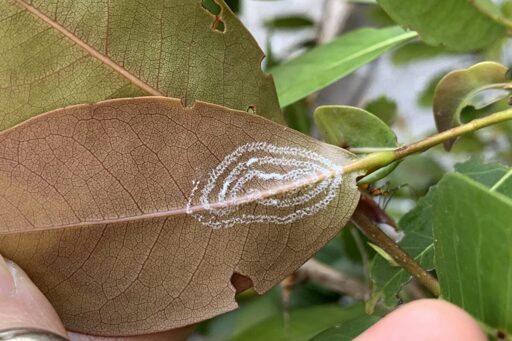The mass invasion of a new insect, the whitefly, in Bangladesh’s agricultural farms — especially in coconut, banana and guava farms — has put farmers at risk due to its devastating effects on crops. How the insects are entering the country is yet to be confirmed, but researchers suggest the pest may have spread in the country via the high-yielding coconut imported in 2014 and 2015. According to a 2022 study, the whiteflies (Aleurodicus rugioperculatus) were first identified in Bangladesh in 2019 on coconut in the southwest. Since then, the insect’s presence has spread across the country with different levels of infestation. “The insect can damage a plant in many ways, including removing nutrients and water from leaves and disrupting the photosynthesis process,” the study states. “Initially, we found the pest in coconut trees; however, now the insect has already made 61 types of plants as their hosts,” said Gopal Das, lead author of the study and an entomology professor at Bangladesh Agricultural University (BAU). He added that coconut, banana and guava are the most affected crops by the pest. Rice, wheat and maize are the primary crops grown in Bangladesh while other crops like jute, tea, banana, guava and coconut are grown as cash crops. According to media reports, in 2023, Bangladesh was the 12th highest coconut-producing country in the world with a yield of 442,700 tons from 25,335 hectares (62,00 acres) of land, while, in 2021-22, the country produced 430,000 tons of guavas from around 89,000 hectares (219,920…This article was originally published on Mongabay
From Conservation news via this RSS feed
There has probably never been a better time to not live in Bangladesh.


